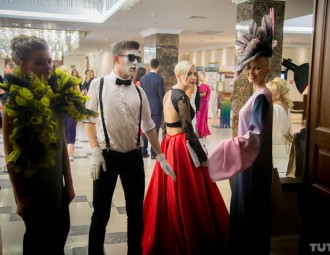Uladzimir Matskevich: Nation is a daily plebiscite, which Belarus simply doesn’t have
 TUT.BY
TUT.BY
Belarusian regime, irremovability of authorities in Belarus is generated by the reluctance of Belarusians to engage in communications.
"Let's just start talking about simpler things. Talk, in order to restore trust in each other", - urges philosopher and methodologist Uladzimir Matskevich.
In Belarus, there are a lot of outstanding and talented people. But "outstanding people never meet, never come together, they don’t need each other, they avoid one another, and no one recognizes anyone."
“All attempts to bring together outstanding, but different people cause irritation or suspicion of wrong intent – a suspicion of an attempt to use someone in someone’s goal,"- Uladzimir Matskevich wrote on Facebook.
Why have Belarusians lost the ability to engage in dialogue with each other? The "EuroBelarus” Information Service tried to understand the problem better with Uladzimir Matskevich.
- It remains a mystery for you why the talented and intelligent people in Belarus avoid each other. But how far has the process gone?
- It’s hard to say. Having set such a question, you understand the vast amount of data that need to be analyzed in order to deal with the problem.
I am concerned, knowing that most of the problems of our country, our state, and our nation have to do with a lack of proper communication. Nation is a daily plebiscite, through which the people, the society itself develops, becomes more convenient, comfortable, and even more happy. Since we don’t have it, we silence the most acute problems: candidates only mention trifles, science is engaged in trivial subject matters, business is as quiet as a mouse and is afraid to make contact with both the active members of the opposition and the civil society. The problems aren’t solved for decades.
- Is it the result of the "divide and conquer" rule, which the Belarusian regime is pursuing, or do the causes lie much deeper?
- The regime itself, the dictatorship irremovability of authorities in Belarus are generated by the reluctance of Belarusians to engage in communications, while the whole complex of issues must be a subject of intense public debate and thoughtful analysis.
This discussion should be available for various stakeholders, from the unemployed to the billionaires, from academics to students, from farmers to Nobel laureates. Only then we will be able to cope with the problems our country is facing.
- And where should we look for a way-out, when in fact, over the last decade no one has undertaken serious efforts to organize a nation-wide discussion of global problems? Is there a chance to break the deadlock?
- We should try. Several times I tried to talk with the leaders of our business – they have gone into denial. I am aware that it seems dangerous for them to engage in a conversation with me, the person who is in bad standing with the KGB and the Presidential Administration. However, I haven’t stopped and I won’t stop my attempts.
It’s impossible to change the higher education only with the help of the management of Belarusian universities; we cannot set the education on the Bologna track without involving the student community and the broad academic community. But we will keep trying.
A wall between us all in Belarus is built, but it’s possible to break this wall - either with the forehead or simply by shouting to each other until we are heard. We shouldn’t wait until a complete stupor in public and social life of the country will come; until there is no voice that is different from the official; until there is full Cubanization of public life. While we still have live voices in Belarus, we should knock on each other, we need to try and talk. Even if not about politics and not about solving the most pressing problems of the state and society.
Let's just start talking about simpler things. Talk, in order to restore trust in each other.
-
03.01
-
07.10
-
22.09
-
17.08
-
12.08
-
30.09



























